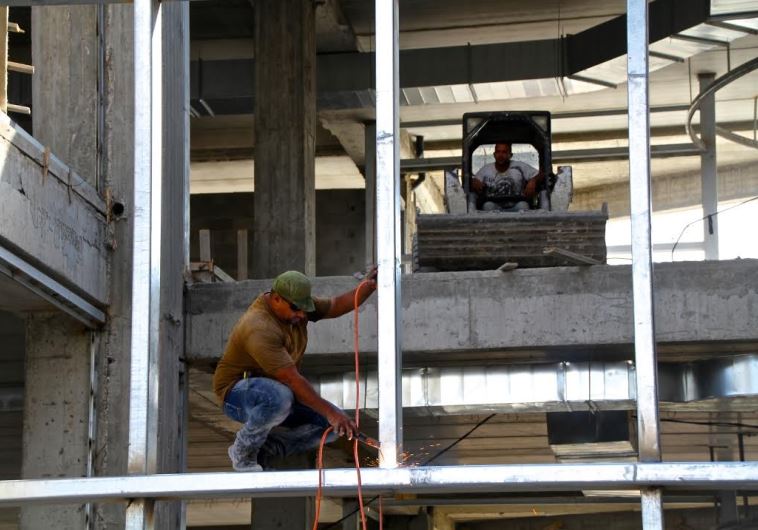Settlers: US may link UN Security Council vetoes on Israel to settlement building
PM meets with settler leaders; US denies having issued any ultimatums to Israel on expanded settlement building over the Green Line.
 Construction workers build new mall at the Gush Etzion junction in the West Bank(photo credit: TOVAH LAZAROFF)
Construction workers build new mall at the Gush Etzion junction in the West Bank(photo credit: TOVAH LAZAROFF)